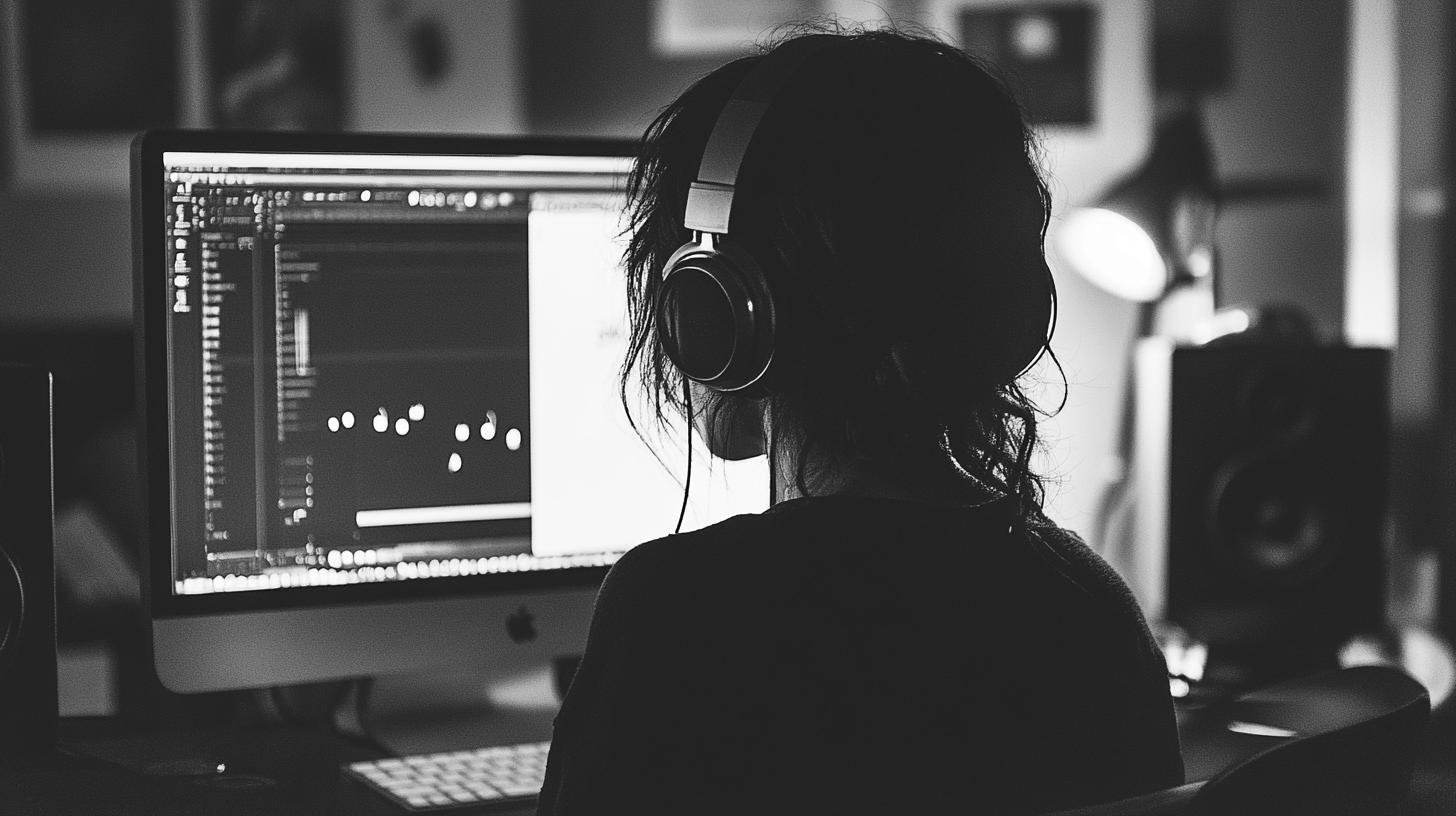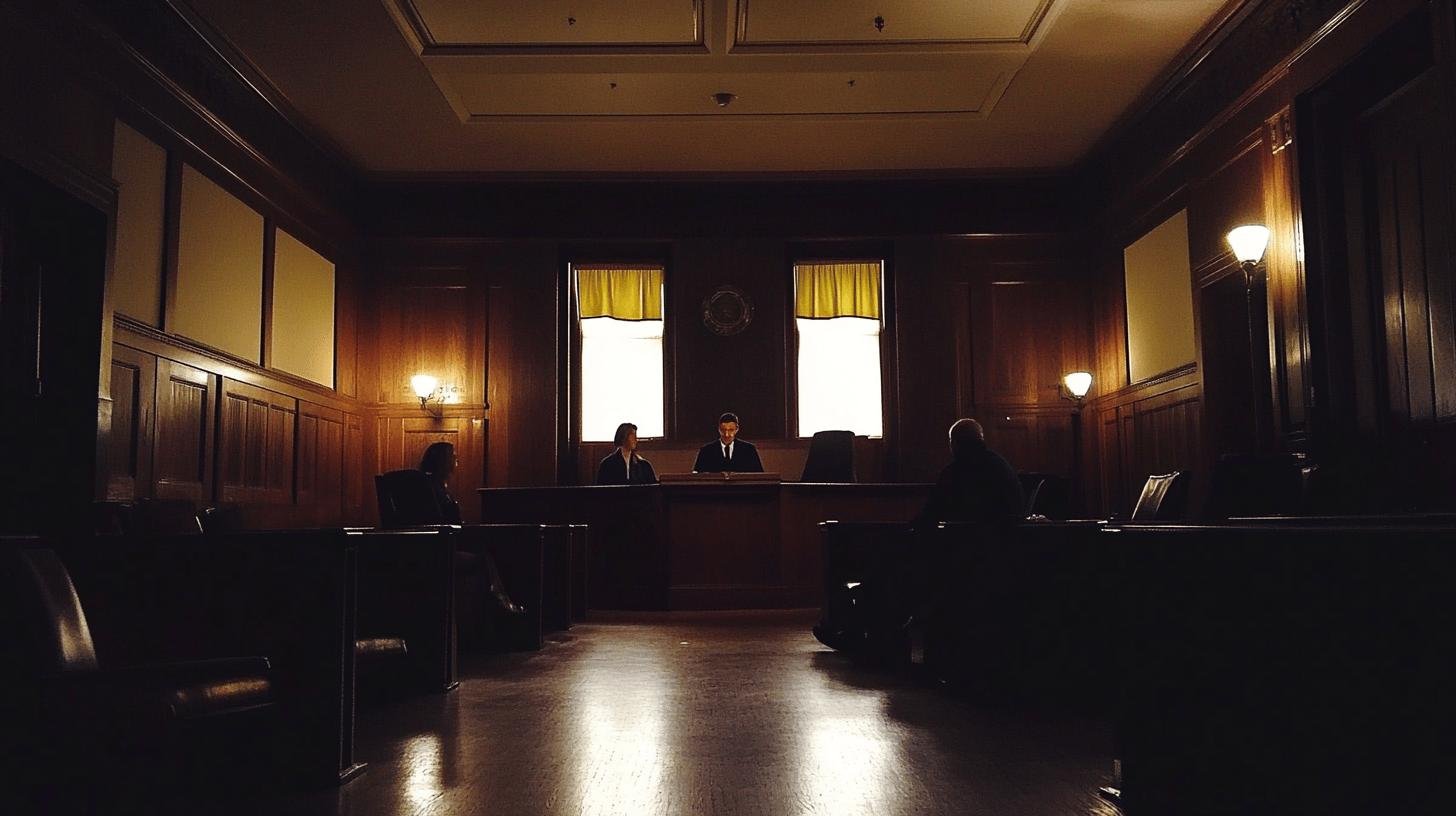Is AI-generated music legal or making new ones? The harmony between music and the legal world is about to be tested, and we’re diving deep into the copyright conundrum. From human creativity to the magic of artificial intelligence, this new tune raises some serious questions. The U.S. Copyright Office isn’t ready to give AI its own spotlight just yet. Without the hand of a human, the dance between code and creativity finds itself in legal limbo. So, grab your headphones as we decode these musical mysteries!
Understanding the Legal Implications of AI-Generated Music
Is AI-generated music legal? This is a puzzling question! AI music challenges our laws, much like trying to decide if your dog owns the stick it fetched. The big question is: Who owns a song composed by a computer? Legal experts are still figuring this out.
Let’s talk copyright laws. The U.S. Copyright Office states that only humans can get copyrights. This means AI-generated music falls into a gray area. Without human creative input, an AI tune may not receive official copyright protections. This complicates ownership claims for catchy AI-generated beats.
Ownership raises more questions. Who can claim rights to the music? Is it the AI creator or the user who makes the music? Without clear rules, it’s like playing a game without knowing how to win. The world of AI music ownership is unpredictable, filled with questions waiting for answers.
- Copyright and intellectual property rights
- Current copyright law limitations
- Human involvement in AI creations
Copyright Challenges in AI Music Creation

When it comes to copyright challenges, is AI-generated music legal? AI-generated music is testing traditional copyright laws like never before. These laws revolve around human creativity, and when a computer creates music, it’s a unique challenge. In places like the UK and EU, lawmakers are puzzled about adapting old rules to new technology. Should AI tunes have the same protection as human-made music?
Originality is another tangled issue. For music to be copyrighted, it usually needs originality. But when a machine composes it, what does originality mean? Some argue that AI lacks originality as it mixes existing data. Others believe AI’s mix of old parts might be considered original. This debate is like deciding if a remix is as fresh as an original piece.
Legal opinions vary widely. Some experts believe AI music should be treated like human-created work, while others suggest new laws are needed. It’s like deciding if a robot chef’s dish belongs in the same cookbook as grandma’s recipes. The legal world is buzzing, with no clear answers yet.
Different regions have unique stances on these challenges:
The United States requires significant human input for AI-generated music to qualify for copyright, while the United Kingdom is debating changes to existing laws. The European Union is grappling with defining originality in AI music, and Australia has no clear stance yet, as the matter is still under review.
These differences highlight the complex legal status of AI music. The rules are still being written!
Ownership and Distribution Rights of AI-Generated Music
Who owns AI-generated music, and is AI-generated music legal? That’s a million-dollar question! Right now, ownership is like a game of musical chairs—uncertain when the music stops. With AI music outside current copyright laws, determining credit and profit is tough.
Who holds these rights? Is it the AI creator or the user? It’s like asking if the person who made the paintbrush owns the painting. Some say the AI creator should hold the rights, others argue for the user. This tug-of-war has no clear winner. Until laws progress, ownership remains unclear.
Also, how much human touch is needed for ownership? If humans tweak AI output, does that make it theirs? It’s like adding sprinkles to a cake—does it become your creation? These talks affect how music is shared or sold. As the industry waits for guidelines, everyone is eager to see how rights will unfold.
Case Studies and Legal Precedents in AI Music

The question is still on emphasis: is AI-generated music legal? Are their court cases on AI music? Not many, but the few that exist are impactful. These cases show a need for clear legal frameworks. Universal Music Group, for example, acted against AI tracks mimicking artist styles, like “Heart on My Sleeve.” Such cases highlight tensions between innovation and protection, showing the murky legality of AI music.
Universal Music Group is proactive in defending artist rights. They’ve removed AI music from platforms when it infringes on original content. This sets a precedent, encouraging other companies to take similar steps. It’s a signal that new rules are needed in this digital music era.
- “Heart on My Sleeve” case
- Examples of legal actions by music companies
- Emerging need for legal frameworks
Future Legal Developments and Jurisdictional Differences
What’s the future of AI music legality? It’s an unpredictable ride. Experts foresee new laws to address AI-generated content’s quirks. Currently, AI music is new and doesn’t fit easily with old rules. New regulations might emerge to ensure fair play, like updating the rulebook for a constantly evolving game.
International cooperation is crucial. Imagine chaos if everyone plays by different rules! Some experts call for global efforts to sync AI music laws. Organizations like WIPO could align laws to avoid confusion. Agreeing on a playlist at a party isn’t easy but necessary to prevent discord.
Different regions have their takes. The U.S. is unsure about required human input for AI music copyrights. The EU debates originality and AI’s place. Each region seems to play by different musical rules, complicating matters for artists and developers working across borders.
What does this mean for the music industry? Legal changes could shake things up. As laws evolve, artists and companies must adapt. This could open new opportunities for AI music creators or set boundaries if regulations are strict. Either way, the industry faces intriguing times as it navigates these legal shifts!
International Cooperation in AI Music Laws
Why is harmonizing AI music laws worldwide challenging? Getting everyone to sing in harmony is tough! Organizations like WIPO aim to align laws across borders. The catch? Countries have varied priorities and legal systems, complicating consensus. It’s like getting choirs worldwide to sing the same song without missing a beat.
Syncing these voices is tough but vital for fairness. While challenging, the benefits could be transformative for global music.
Conclusion
So, is AI-generated music legal?
AI-generated music is a legal puzzle for creators and lawmakers. We’ve tackled copyright law battles and explored debates on creativity and ownership. It’s clear these issues won’t fade away anytime soon.
The big question remains: is AI-generated music legal? Right now, there’s no one-size-fits-all answer. Laws are evolving, and jurisdiction adds its own twist.
Though the path is uncertain, it’s exciting to witness this legal evolution. With each twist, we edge closer to fair rules that recognize both human and AI creativity.
FAQ
Is AI-generated music legal on Reddit and YouTube?
AI-generated music on platforms like Reddit and YouTube is subject to copyright laws. If there’s significant human input, it may be protected, but pure AI creations often face legal uncertainty.
Is AI-generated music legal on Spotify?
Spotify allows AI-generated music but requires compliance with copyright laws. If your AI music violates these laws or the rights of other artists, it might get removed.
Can you sell AI-generated music?
Selling AI-generated music is possible, but check copyright laws. If the AI generates music without human involvement, the legal owner might be unclear.
Is AI-generated music legal and protected by copyright?
The copyright for AI-generated music is complex. Generally, copyright laws cover human-created music. AI-only creations aren’t typically protected unless there’s human creativity involved.
Can I use AI-generated music?
Yes, you can use AI-generated music, but consider copyright implications. Ensure you have the right to use it, especially if no human creativity was involved in its generation.




